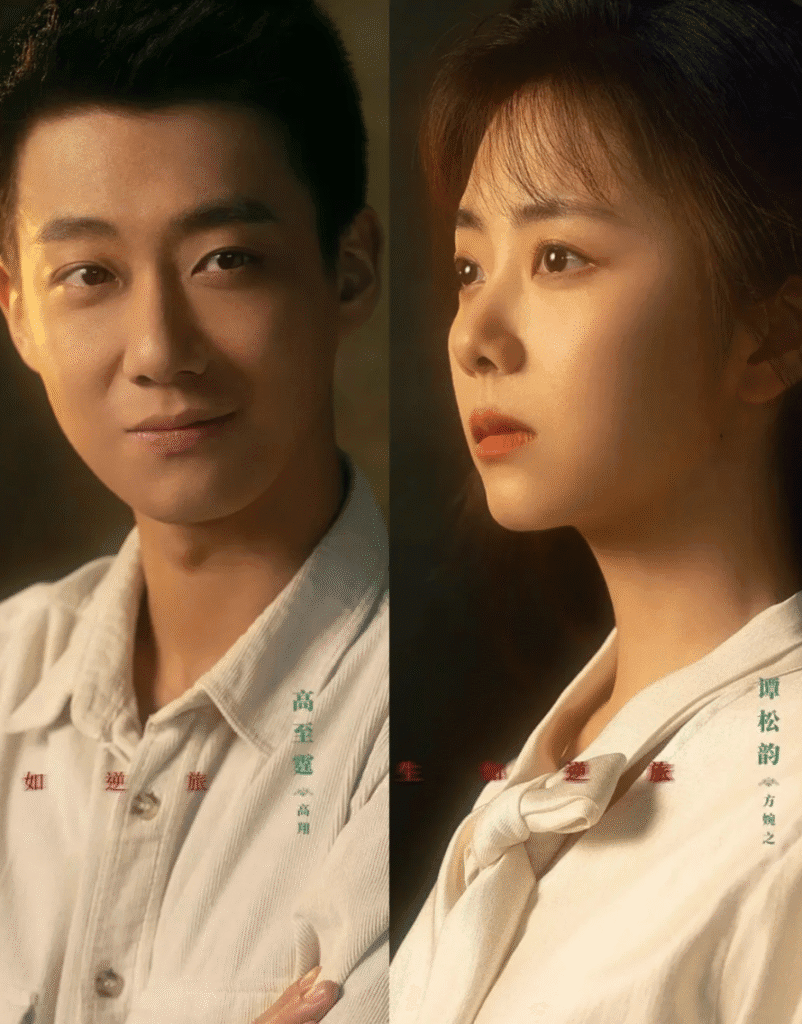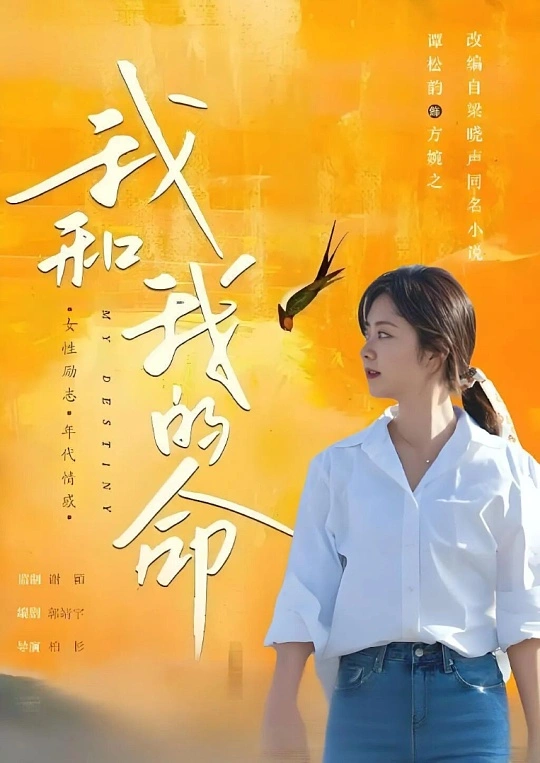One of the most anticipated reality-based dramas of the year, My Destiny (《我和我的命》) is reportedly set to premiere by the end of 2025. Since its announcement, the series has drawn immense attention, hailed as both a “tear-jerker” and a “booster shot of courage”—a story that makes you cry hard but leaves you fired up.

In this drama, Tan Songyun completely sheds her “sweet girl” image to portray Fang Wanzhi, a tough and determined woman who climbs from the depths of poverty to success. Born in a remote Guizhou mountain village called “Shenxianding,” Fang was abandoned by her parents at birth simply because she was a girl. At 20, with only a few bills in her pocket, she boarded a southbound train to Shenzhen and became just another face in the migrant workforce. No one could have imagined that the girl who once worked in a construction site cafeteria and ran from city inspectors would one day lead her own company to an IPO.

But what makes My Destiny stand out is its raw realism—there are no “miracle rescues” or “CEO love stories.” Fang Wanzhi’s rise is built on grit and hard work. By day, she toils on the assembly line; by night, she studies English and customs regulations. Her hands grow calloused, but her resolve only hardens. When faced with the disdain of powerful businessman Huang Yaodong, she doesn’t cry or beg—she fights back with intellect and innovation, registering her own patents and proving herself through sheer capability. For countless working-class viewers, her revenge is a cathartic triumph.

The show also celebrates female friendship with refreshing authenticity. Fang’s “entrepreneurial trio” with Li Juan and Hao Qianqian is the emotional core of the series. They share instant noodles in a cramped apartment, pool their savings after failed ventures, and hold each other up when the world turns its back. Their bond, forged through struggle, feels deeper than any romance.
Then there’s Gao Xiang, the photographer who redefines the role of a male lead. He’s not domineering or overbearing; instead, he supports Fang quietly—handing her coffee during late nights and saying, “You’re the phoenix that rose from Shenxianding.” This partnership of equals feels far more genuine than the overused “CEO falls in love” trope.

As screenwriter Guo Jingyu put it: “This isn’t a fantasy about overnight success—it’s about ordinary people paving their own roads, inch by inch.” That sentiment forms the heartbeat of the show. Fang Wanzhi’s strength doesn’t come from luck or privilege, but from herself. Her line, “Others have parents to rely on. I rely on me. If your bones are strong enough, even fate must make way,” has already become iconic.
One of the most moving moments comes when Fang returns to her hometown on the day her company goes public. She’s not there for revenge, nor forgiveness. Standing before the parents who abandoned her, she simply says, “I don’t forgive, but I let go.” She funds schools, adopts orphans, and transforms the pain of her past into light for others. This kind of “healing without pretending” feels more real than any forced happy ending.
Tan Songyun’s performance is nothing short of remarkable. From the naïve Chun’er in Empresses in the Palace to the lively Yuan Jin Xia in Under the Power, and now the fierce and layered Fang Wanzhi, she’s proven her versatility. She even filmed middle-aged scenes completely barefaced, capturing the weary yet resolute gaze of a woman who’s been through it all. Director Bai Shan praised her, saying, “She doesn’t act—she lives.”
Off-screen, Tan Songyun’s journey mirrors her character’s. After losing her mother in a tragic accident, she continued filming through tears. From a small-town girl in Sichuan to a household name on China’s biggest screens, her story is one of persistence and quiet power. As fans put it, “Tan Songyun isn’t playing Fang Wanzhi—she is Fang Wanzhi. Both turned bad hands into royal flushes.”
My Destiny is more than just a drama—it’s a mirror reflecting the struggles of ordinary people: family wounds, workplace ceilings, emotional setbacks. But Fang Wanzhi teaches us that the cards we’re dealt don’t define us—how we play them does.
With its expected premiere at the end of 2025, My Destiny is poised to become one of the most talked-about dramas of the year.
So, if life hands you a bad deck, what would you do?
Would you fight to stay and prove yourself—or, like Fang Wanzhi, turn your pain into power and start anew?